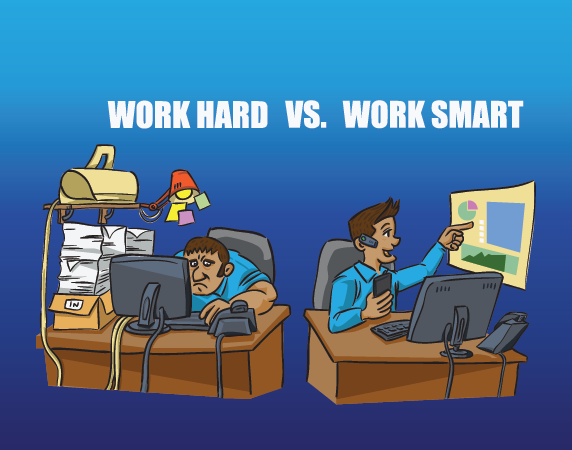How to Empower your Business with an iOS Application
iOS App Development: Grow Your Business With An iOS App
With smartphones and tablets emerging as the device of choice for most people, apps are in a boom phase. Businesses are joining the bandwagon in a big way, rolling out apps that offer a world of convenience to their customers and employees alike. However, while doing so, they need to be wary of losing focus.
Apps are not just another channel to execute the entire gamut of organizational functions. The most effective apps serve specific purposes, and in the process empower the business.
Businesses also need to take a serious look at iOS application development, considering iOS apps have proven to be very engaging. An average iPhone user spends about 75% of her time on apps, probably owing to iOS applications being able to leverage the advanced features and functionality of Apple devices.

Here are some ways in which you can empower your business, using iOS application.
Roll Out Customer-Facing Apps
Customer facing iOS app is a good idea, considering Apple devices, such as the iPhone, has more than a 15% share of the total smartphone market. Such apps not only promote sales but help in engaging with customer better. Marketers may send out push notifications on key milestones, keep track of customer behavior, issue special offers when a customer is in the vicinity of a store, and do more. Customers may be given several self-service options, from keeping track of loyalty points to access of neutral product reviews, and more.
Empower Internal Teams
Imagine the world of convenience when the salesperson, on meeting with a potential or existing customer, pulls out the iPhone, opens an app that draws on data from the CRM, and gather all details about the customer, right from his purchase history to open inquiries, his preferred channels of communication, and so on. The salesperson also gets highly customized tools and relevant insights, such as market surveys, reports, and more. iOS apps facilitate similar empowerment across all functional area, be it accounts, HR, logistics, and other teams.
Forge Deep Relationship with the Ecosystem
More and more businesses seek to develop apps that help the company forge deeper relationships with their ecosystem partners, such as suppliers, contractors, and others. An app that makes explicit real-time stock levels and issue alerts would prompt suppliers to make timely deliveries, and improve the efficiency of their business as well. Contractors could log into another intuitive iOS application to get a list of open projects, deadlines, billing, and more. Channel partners could also gain from first-hand access to a ton of resources, and all the information they require, without having to make follow-ups, or spend time seeking information.
Facilitate the “Internal” Customer
An iOS app could likewise benefit the “internal customer” of the enterprise. Employees could, for instance, use an internal employee app to make leave requests, access their payroll details, stay updated on everything from upcoming team meetings to office parties, and more. Such apps eliminate complicated and time-consuming paperwork, be it filing trip sheets, expense reports, or appraisal forms. With the bulk of information readily available at their fingertips, employees can focus wholeheartedly on their core tasks, improving their productivity manifold.
Streamline Internal Processes
Many enterprise apps streamline internal workings and deliver big productivity gains. Employees starting a task could hook up to an iOS application that guides them through the specific process flow, helping them complete the task without being bogged down by doing things the wrong way, or seeking instructions. The app could also facilitate electronic submissions of documents and bills associated with the task, and make sure the next in line gets a notification to process the same. The benefits are multifold and include reduced paperwork, better productivity, faster turnaround time, and cost-cutting. Still better, employees are empowered to do the task from anywhere, at any time.
Promote “Smart” Work
Apps can help employees work smarter instead of harder. A case in point: the average employee attends 62 meetings a month, wasting a whopping 31 hours in the process. A collaborative app that enables managers to set targets, notify team members of their targets and deadlines, allow team members to submit their results, and do more can eliminate a good chunk of such meetings, and save considerable time. Such app based internal communications is also a good way to overcome silos, a big stumbling block for the free flow of information.
Transform Organizational Processes
Rolling out iOS applications could even eliminate certain traditional functions altogether. For instance, a training app that delivers instructional videos, handbooks, and other resources to the employee’s iPhone could completely eliminate the need for training sessions. The cost saved in terms of arranging training resources and the trainer’s time alone would repay the investment in the app many times over. Employees could also leverage such apps to unlock training and development opportunities not available before. The impact on employee performance and commitment are worth its weight in gold.
All the possibilities come to pass only when the app development is done right. iOS developers would do well to customize enterprise apps by giving it a distinct look and feel that resonate the brand image, offer appropriate options such as choice of languages, flexibility to enable or disable certain features, location mapping and more. The ability to customize the app and the presence of value-added features make the employee feel more connected and enhance the worth of the app.
Development of iOS apps is a far more straightforward process, compared to developing Android apps, as Apple provides standardized SDKs, APIs, and IDE needed for the application development. However, Apple’s app store discards apps that do not meet its guidelines, and as such iOS app development requires a much more concentrated and focused effort. A partnership with a reputable company to develop the iOS application helps pass the iTunes test and ensure the effort invested in the app development process does not go waste.
Stay up to date on what's new

Recommended Posts

17 Jan 2019 Manufacturing Retail
iOS 12 Application Development Features That Can Benefit Enterprises In 2024
iOS 12 is now live and represents the latest evolution of Apple over its decade long existence. Today, Apple’s App Store has over two million apps with over 170 billion……

10 May 2017 Retail
Why Your Growing Business Needs Enterprise Applications
With the internet, especially mobile internet now a way of life, businesses are going overboard developing enterprise apps. A 2015 Gartner survey reveals 79% of enterprises increase their mobile spending……

11 Nov 2016 Retail
Is Cross-Platform Mobile Application Development the Future?
The mobile ecosystem is hopelessly fragmented, with a multitude of devices, powered by divergent flavors of multiple operating systems. Developing native platform specific apps in such a state of affairs……

04 Nov 2016 Manufacturing
Why You Should Use Swift the Next Time You Roll Out an iOS App
A major decision to take upfront when developing an iOS application is the choice of programming language. Among the options available, Swift, Apple’s new multi-paradigm, compiled language, is fast gaining……
Featured Blogs
Stay up to date on
what's new

























































